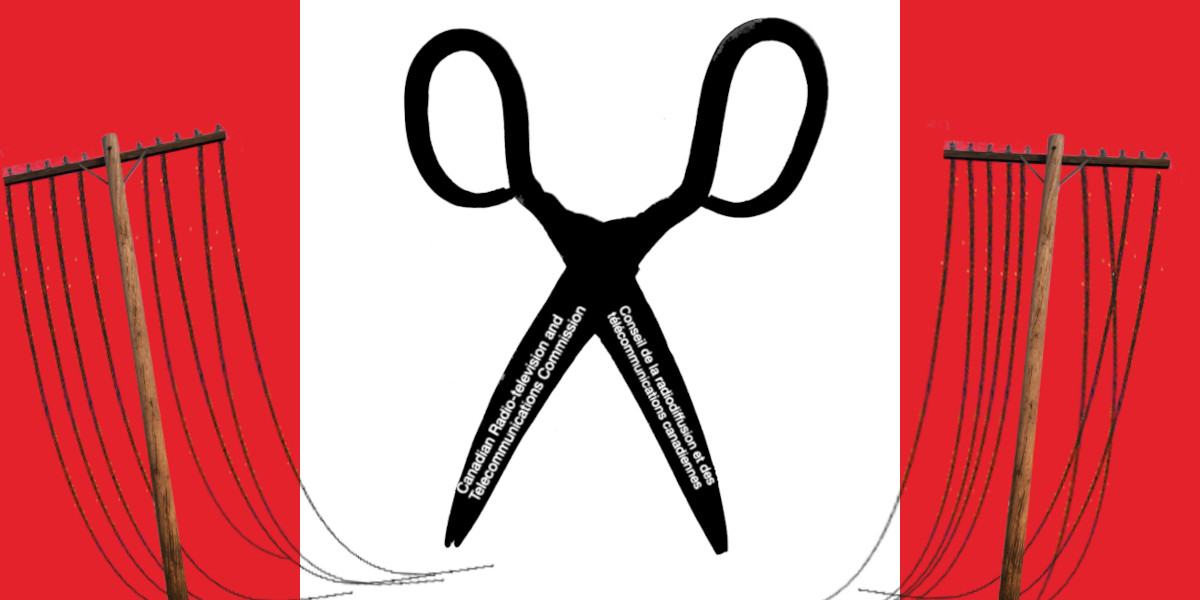
If there's one lesson you'd hope governments would take away from the pandemic and the lockdown, it's that good internet policy - universal access at fair prices, managed in the public interest - is a prerequisite for ALL good policy.
Canada didn't get the memo.
1/
Canada didn't get the memo.
1/

Last week, the @CRTCeng - Canada's telecoms regulator - released its long-awaited decision on the wholesale prices paid by small, innovative ISPs to access the facilities of Canada's telecoms monopolists.
It's the worst such decision in history.
blogs.teksavvy.com/the-liberal-go…
2/
It's the worst such decision in history.
blogs.teksavvy.com/the-liberal-go…
2/
Ian Scott (a former teleco lobbyist that @JustinTrudeau's @liberal_party put in charge of the CRTC) shocked the nation by reversing the Commission's own policy, dramatically raising wholesale prices, signing a death-warrant for Canada's entire independent ISP sector.
3/
3/
The decision means hundreds of millions of dollars in windfall profits for the Big Three Canadian telco monopolists, and ends ambitious plans by Canada's wonderful indie ISPs like @TekSavvyBuzz to lay both rural and urban fiber.
4/
4/
Even worse: Scott has reversed the CRTC's order for the Big Three to refund millions in price-gouged overcharges to indie ISPs, despite a vast public record that indicates that this money was illegally extracted.
5/
5/
It's the latest in a string of terrible internet policy decisions from Scott's CRTC, including a rule that indie telcos that bid on wireless spectrum must also strike deals with the Big Three monopolists, guaranteeing that such efforts will lose money and fail.
6/
6/
Ian Scott is a dingo babysitter, a fox in the henhouse, a gator in the swamp. Teksavvy is calling on the Liberals to #FireIanScott.
7/
7/
According to the @TorontoStar, the Liberal government isn't happy with Scott's decision, but it's hard to imagine them taking action on this issue, given the Liberals' idiotic internet regulation attempts.
thestar.com/business/analy…
8/
thestar.com/business/analy…
8/
Trudeau will be remembered as the first Liberal PM to be stupider about the internet than the Tories. After all, his first broken election promise was the repeal of Bill C-51, the Tories' mass surveillance act, which he whipped his caucus to vote for.
citizenlab.ca/2017/12/citize…
9/
citizenlab.ca/2017/12/citize…
9/
Today, the Liberals are pushing hard for #BillC10, an internet censorship bill that has far-reaching implications for everything from podcasts to blog posts, despite government misinformation to the contrary.
pluralistic.net/2021/05/27/8-h…
10/
pluralistic.net/2021/05/27/8-h…
10/
The Trudeau reality-distortion-field is in full effect with Bill C-10, with Liberal spin-doctors having convinced Canadians that opposition to Bill C-10 comes from Tory simps who've been conned about the true extent of the bill.
11/
11/
But C-10 really does reach into every aspect of Canadians' online lives, and will empower future government appointees to inflict harms even greater than the damage Ian Scott is dealing to the nation's digital future.
12/
12/
Worse, the @NDP and @BlocQuebecois have joined with with the Liberals in supporting this bill, refusing to back amendments that would have repaired many of the serious defects in the language.
michaelgeist.ca/2021/06/libera…
13/
michaelgeist.ca/2021/06/libera…
13/
Assuming that anything the Tories want to do to the internet is fucking awful is a pretty good rule of thumb, but not this time. Not only are they right about the potential harms of C-10, but they're also poised to weaponise it after their next election win.
14/
14/
After all, as bad as schmucks like Ian Scott are, Tory appointees are even worse: just imagine how PM Doug Ford (or worse, PM Faith Goldy) would use these censorship powers.
15/
15/
Image:
Hardyplants (modified)
commons.wikimedia.org/wiki/File:Scis…
Famartin (modified)
commons.wikimedia.org/wiki/File:2015…
CC BY-SA:
creativecommons.org/licenses/by-sa…
eof/
Hardyplants (modified)
commons.wikimedia.org/wiki/File:Scis…
Famartin (modified)
commons.wikimedia.org/wiki/File:2015…
CC BY-SA:
creativecommons.org/licenses/by-sa…
eof/
ETA - If you'd like an unrolled version of this thread to read or share, here's a link to it on pluralistic.net, my surveillance-free, ad-free, tracker-free blog:
pluralistic.net/2021/06/01/you…
pluralistic.net/2021/06/01/you…
• • •
Missing some Tweet in this thread? You can try to
force a refresh









